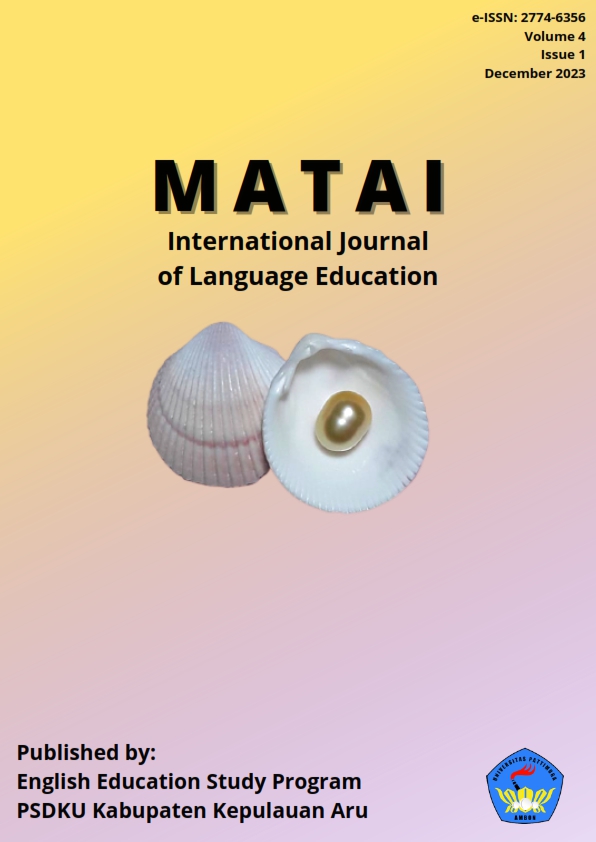Students’ Perception on the Implementation of the 4C’s Learning Skills Through Project Based Learning in Material Development Class
Abstract
This research aims to explore the student perspective regarding the incorporation of 21st Century Learning Skills, commonly referred to as the 4C's (Critical Thinking, Creativity, Collaboration, and Communication), through project-based learning in the 'Material Development' class. The primary focus is to assess the effectiveness of applying these 4C's in enhancing students' material development. The study involved 15 postgraduate students from the English Study Program at Pattimura University, Ambon, during the academic year 2022-2023. Data collection encompassed three close-ended Likert scale questionnaires. One questionnaire was distributed among the participating students to gauge their perceptions of the 4C learning skills. Meanwhile, two other questionnaires were administered to lecturers to evaluate the content and visual design of five English lessons developed by student groups (comprising three students per group) to assess the effectiveness of integrating the 4C's learning skills in lesson creation. The outcomes from the students' questionnaires indicated a positive spectrum of perceptions regarding the application of the 4C's, ranging from 'strongly agree' (34.25%) to 'agree' (56.5%), with 'neutral' (7.75%) and 'disagree' (1.25%) responses constituting the remaining percentages. Evaluation from the expert's questionnaire on lesson content revealed a mean score of 95% for lessons 1, 2, and 3, categorized as 'very good,' while lessons 4 and 5 scored 73.5%, indicating a 'good' rating. Additionally, the assessment of visual design across the five lessons garnered a mean score of 88.2%, categorized as 'exemplary.' These findings suggest that integrating 21st-century learning skills, specifically the 4C's, is highly beneficial and recommended for application within the teaching and learning processes.
Downloads
Copyright (c) 2023 Sophia Binnendyk, Hendrik Jacob Maruanaya, Yeri Titarsole

This work is licensed under a Creative Commons Attribution 4.0 International License.
Authors who decide to share their articles with this journal must agree with these requisites:
|
1. The author, as the copyright owner, gives Matai the right to publish their work 2. Authors can share their articles, but they have to use Matai's published version by acknowledging Matai as the source. 3. Authors are encouraged to share their work online in order to let people know about their articles which can lead to more citations of the published work. |



